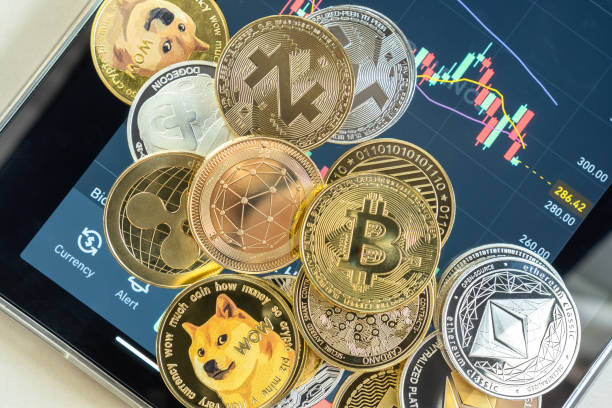It was at a time a consensus that cryptocurrency and digital money was just a fad that will slowly but surely phase themselves out. However, this does not appear to be the case as bitcoin, one of the largest and most popular cryptos has a market value (as of today) of 19,074,115.01 Naira (approximately 46,499.55 dollars) according to Coinbase. This has caused an upsurge in interest in crypto assets leading to the market cap for all crypto being ₦866,746,447,863,499 according to Coinmarketcap. The continued acceptance has made these coins gain more traction as legal tenders accepted in exchange for goods or services.
It is no surprise that the International Monetary Fund (IMF) stated that some emerging markets and developing economies face immediate and serious risks of currency substitution by crypto assets and the advent of crypto can accelerate what we have called “cryptoisation”—when these assets replace domestic currency and circumvent exchange restrictions and capital account management measures. This was contained in its report titled ‘Global Crypto Regulation Should be Comprehensive, Consistent, and Coordinated’ released on the 9th day of December 2021. Nigeria according to the Washington DC-based Fund is at great risk of this substitution as the dominance of crypto assets skyrocketed during this pandemic.

According to the report, “While the nearly $2.5tn market capitalisation indicates the significant economic value of the underlying technological innovations such as the blockchain, it might also reflect froth in an environment of stretched valuations.” It goes on to state that identifying, monitoring, and management of crypto-related risks continues to defy regulators and firms.
One of the ways in which the Nigerian Government had earlier responded to crypto was to ban cryptocurrencies in Nigeria as well as prevent Deposit Money Banks (DMBs) to desist from transacting in/and with entities dealing in cryptocurrencies. However, this has had little to no effect as Nigerians can still transfer crypto assets to each other using various P2P platforms.
The report goes on to state that such risks underscore why we now need comprehensive international standards that fully address the risks posed by crypto assets to the financial system, their associated ecosystem, and their related transactions while allowing for an enabling environment for useful crypto assets products and applications. A global standard for governing these crypto assets will help ensure that they do not take over local currencies as guidelines will be put in place to prevent the same.
The report concludes by stating that crypto assets are potentially changing the international monetary and financial system in profound ways. The IMF has developed a strategy in order to continue to deliver on its mandate in the digital age. The Fund will work closely with the Financial Stability Board and other members of the international regulatory community to develop an effective regulatory approach to crypto assets.
In regulating crypto, various countries are taking different strategies, and existing laws and regulations may not allow for national approaches that comprehensively cover all elements of these assets. Also, many crypto service providers operate across borders, making the task for supervision and enforcement more difficult, it might then be best to have a global crypto regulation, which will allow for global enforcement.
